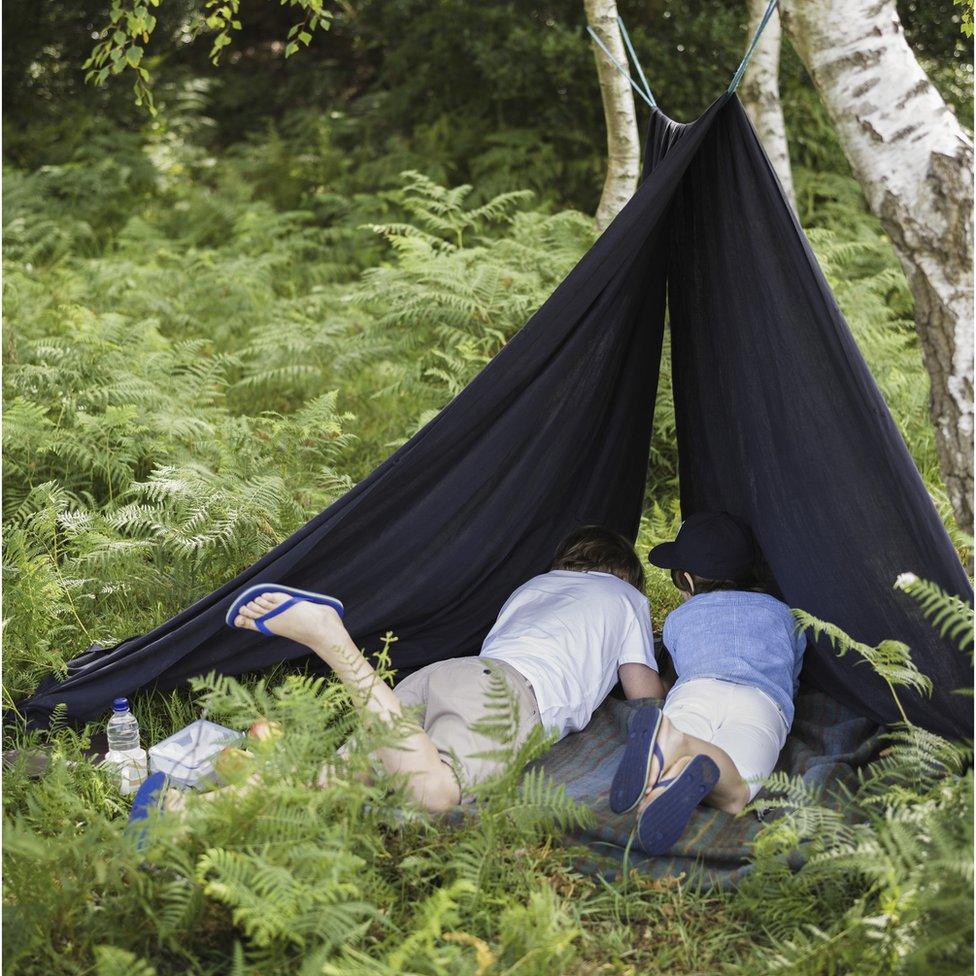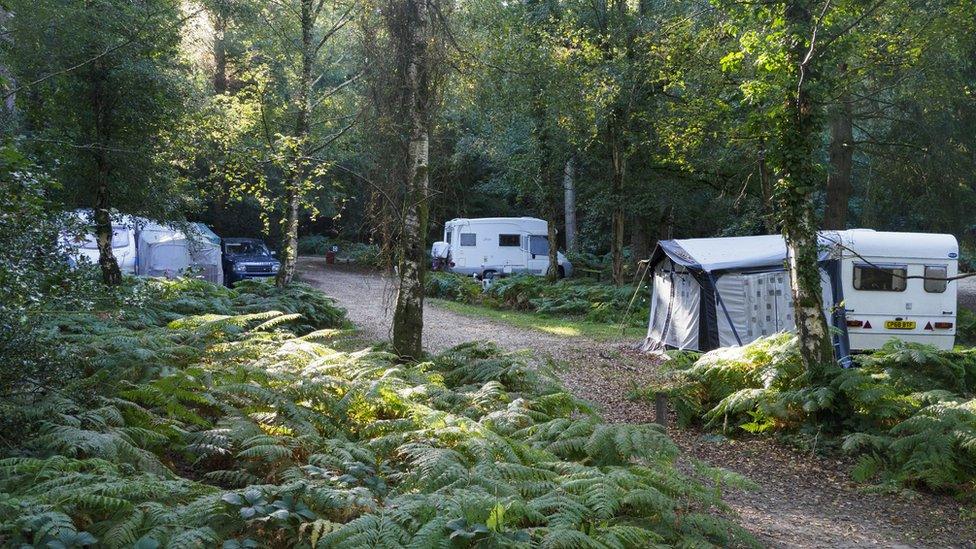New Forest pop-up campsites to be regulated
- Published

Pop-up camping will become regulated now the New Forest National Park Authority has acted
A clampdown is being introduced to stop the growing number of pop-up campsites in a national park.
The New Forest National Park Authority said it was acting to prevent further damage to the environment and community.
The rules around temporary campsites were relaxed during Covid lockdowns when foreign travel was prohibited.
But there are now three times as many camping pitches in the New Forest than in any other national park in England.
There are 12 known temporary campsites, with pitch numbers ranging from 12 to 90, and many of them advertise on national camping websites.
Currently, they can operate for 28 days a year without official consent and that figure was extended to 56 days during the pandemic to try to help the hospitality sector.
Steve Avery, executive director of the New Forest National Park Authority (NFNPA), said: "Over the last five years the number of temporary pop-up sites has gone up, demand is insatiable."
But Mr Avery said with them came problems associated with traffic, anti-social behaviour, smoke, noise, litter and fires and that management was "badly needed".

The New Forest has three times more camping pitches than any other park authority in England
"One pop-up site close to the River Avon on its website it had wild swimming and people on inflatables, that's something you might expect in a theme park, not in the New Forest," he added.
From September 28-day campsites with 51 pitches or more, along with any new 28-day sites created after 1 March 2020, will have to apply for planning permission.
It means those who run the campsites will have to produce written guidance about how they intend to manage the sites.
"It hasn't been designed to stop camping in the New Forest, just to bring it under a degree of control," Mr Avery said.
The authority carried out a public consultation last year - of the 99 responses received 71% supported the planned changes and 20% objected.
The NFNPA is one of the most-visited national parks in England, with more than 15 million visitor days each year, according to its most recent figures.

Follow BBC South on Facebook, external, Twitter, external, or Instagram, external. Send your story ideas to south.newsonline@bbc.co.uk, external.